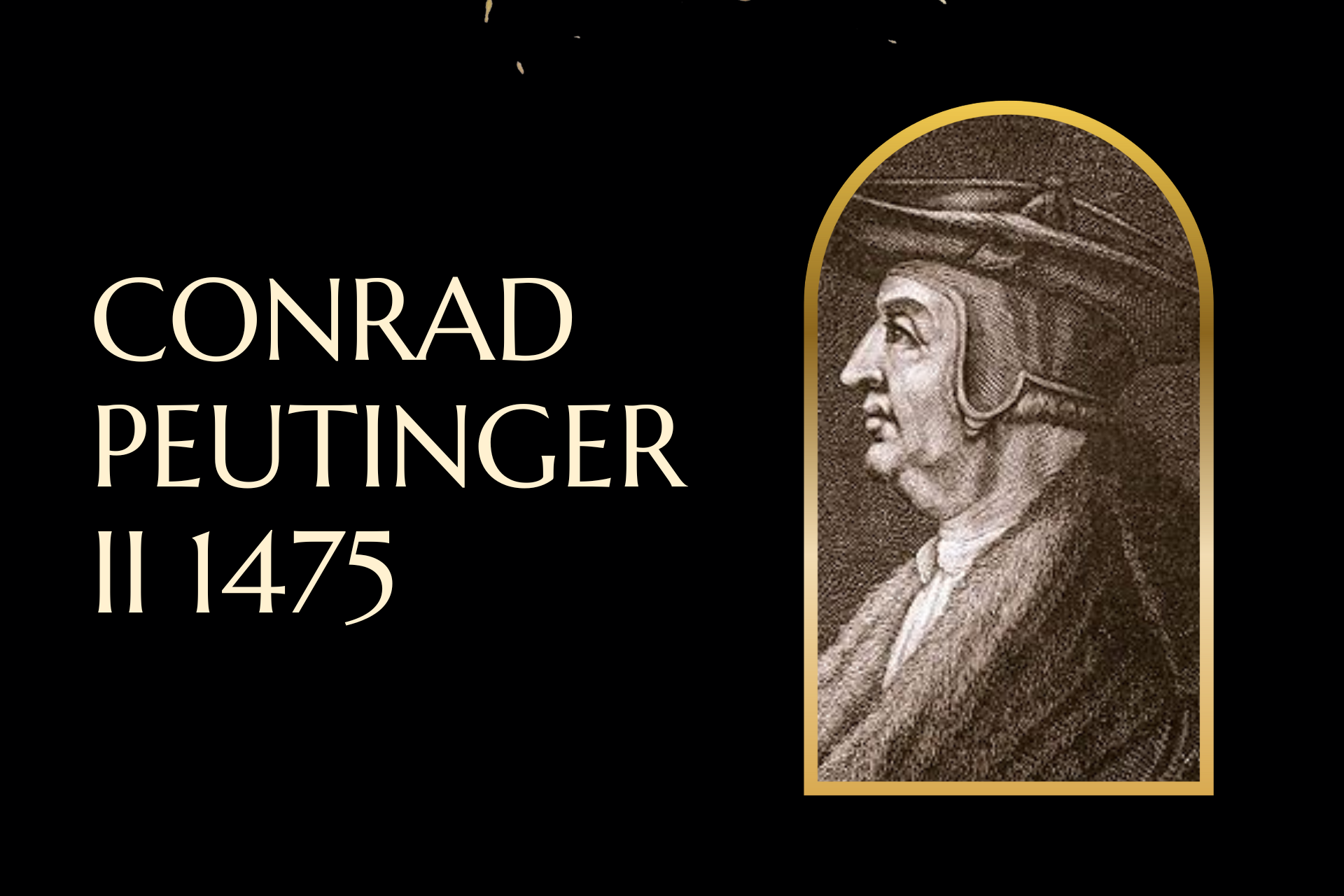Conrad Peutinger II 1475: a Scholar and Diplomat in Renaissance Europe
Conrad Peutinger II born 1475 was a German humanist, diplomat, and scholar. His work is important in the context of Renaissance Europe, especially in the preservation of Roman history.
Peutinger’s love for Roman antiquities and his importance in the diplomatic world make him worth reading today.
Who Was Conrad Peutinger II 1475?
Conrad Peutinger II was a man of many talents. He was a lawyer, humanist, and diplomat of the Holy Roman Empire.
His most important work is the preservation of Roman history and diplomacy, he is a man of the Renaissance.
The Early Life of Conrad Peutinger II 1475
Born in Augsburg, Germany Conrad Peutinger II grew up in a connected family. His early exposure to Roman history and the classics shaped his academic interests.
Growing up in a scholarly environment made him interested in history, law, and politics.
Education and Influences on Conrad Peutinger II 1475
Peutinger studied law and humanities at one of the best universities in Europe, the University of Padua.
His education made him a leading figure in Renaissance humanism. Peutinger was influenced by many scholars and philosophers which is visible in his work on Roman history and legal reforms.
Conrad Peutinger II 1475 and His Passion for Roman History
Conrad Peutinger II loved Roman history. His most famous work, the “Tabula Peutingeriana”, a Roman road map, is proof of that.
This is one of the most important medieval maps of Roman roads and has been saved as a document in cartography history.
Conrad Peutinger II 1475: A Scholar in Renaissance Europe
In Renaissance Europe, Conrad Peutinger II was more than a historian. He was a scholar who embodied the Renaissance spirit, back to classical antiquity.
He was well-known as a scholar and contributed to humanism in Germany.
The Role of Conrad Peutinger II 1475 in Diplomacy
Apart from his scholarly work, Peutinger was a trusted diplomat under Emperor Maximilian I. His diplomatic missions were between European powers and his knowledge of law was often used. Peutinger was a diplomat and a scholar, he balanced both roles throughout his life.
What was the significance of the Tabula Peutingeriana in medieval cartography?
The Tabula Peutingeriana is one of the most important medieval maps. It is a map of the Roman road network, that goes across Europe, North Africa, and parts of Asia. Conrad Peutinger II saved this map and we still study it today for its historical value.
Key features of Tabula Peutingeriana:
- Shows the Roman Empire’s road network.
- Shows the Roman infrastructure.
- It was a reference for medieval scholars studying ancient Roman geography.
What role did Peutinger play in the Reformation?
During the Reformation Conrad Peutinger II was a diplomat. He was not involved in the religious debates but was a mediator.
His main concern was the stability of the Holy Roman Empire and he looked for political solutions to the religious conflicts.
How Conrad Peutinger II 1475 Worked with Emperor Maximilian
Peutinger’s relationship with Emperor Maximilian I was the key to his career. As one of the emperor’s most trusted diplomats, he had several important missions.
His legal knowledge and diplomatic skills made him indispensable in the imperial court, and his work with Maximilian allowed him to influence European politics.
How did Conrad Peutinger’s economic policies influence his time?
He also worked on economic policies in the Holy Roman Empire. His legal expertise was used for economic reforms, especially in trade and commerce.
His policies were to strengthen the empire’s economy by modernizing the business law.
Key Diplomatic Missions of Conrad Peutinger II 1475
He was involved in:
- Forming alliances with European powers.
- Representing the Holy Roman Empire in international negotiations.
- Mediating between different factions in the empire.
The Importance of the Peutinger Table and Conrad Peutinger II 1475
The Peutinger Table is the key to the Roman Empire’s road network. Conrad Peutinger II’s work on this ancient map has left a permanent mark, so historians and cartographers can study Roman infrastructure.
Conrad Peutinger II 1475: Preserving Roman Antiquities
Peutinger’s interest in Roman antiquities went beyond the Peutinger Table. He collected Roman objects, manuscripts, and other historical documents which are now valuable resources for modern historians.
His collection is a window into the ancient world and how it influenced the Renaissance scholars.
How Conrad Peutinger II 1475 Influenced European Politics
As a diplomat, Peutinger had a lot of influence on European politics. His diplomatic work kept the peace in times of religious turmoil.
By mediating between factions and representing the Holy Roman Empire he shaped the political landscape of Renaissance Europe.
Conrad Peutinger II 1475 and His Contribution to Renaissance Humanism
He was a humanist.
His scholarly work, especially in Roman history, was part of the humanistic revival of the time. He was part of a circle of humanists who wanted to bring back the glory of the ancient world.
The Legacy of Conrad Peutinger II 1475 in Historical Scholarship
Peutinger’s impact on historical research is huge. His work on Roman history through maps and documents makes him a key figure in classical antiquity research.
Modern historians still use his work to study Roman infrastructure and humanism.
Conrad Peutinger II 1475 and His Impact on Modern Historians
Modern historians see Peutinger as the bridge between ancient and Renaissance. His work is a treasure trove of Roman history and a primary source for Roman and medieval European historians.
The Life and Times of Conrad Peutinger II 1475
He lived in times of great turmoil. The Renaissance was in full bloom and the Reformation was just starting.
He managed to navigate all that and his scholarly and diplomatic roles? Impressive.
How did Peutinger’s relationship with Maximilian I impact his career?
Peutinger’s relationship with Emperor Maximilian I was key to his career. It allowed him to become a diplomat and to shape European politics.
It also allowed him to contribute to economic and legal reforms in the empire.
Why Conrad Peutinger II 1475 is Still Important Today
Conrad Peutinger II’s work is relevant today, especially in history and cartography. His preservation of Roman antiquities and his humanism of the Renaissance still matters to scholars.
He navigated the turmoil of politics and religion too.
Conclusion
Conrad Peutinger II (1475) was a scholar, diplomat, and humanist. His work has lasted.
His Roman history, diplomacy, humanism. He’s important. Historians still read his work to learn about the past so his legacy endures.
FAQs
Who was Conrad Peutinger II (1475)?
Conrad Peutinger II was a German scholar, humanist, and diplomat who preserved Roman history and was a diplomat in Renaissance Europe.
What is the Peutinger Table?
The Peutinger Table is a Roman road map. He saved this map.
What did Conrad Peutinger II study at university?
He studied law and humanities at the University of Padua where he fell in love with Roman history and humanism.
How did Conrad Peutinger II influence European politics?
Through his diplomatic missions and his work with Emperor Maximilian I, he shaped the politics of Renaissance Europe.
What was Conrad Peutinger II’s role in Renaissance humanism?
He was a key figure in Renaissance humanism, he revived classical knowledge and studied Roman antiquities.
How did Conrad Peutinger II (1475) save Roman history?
He saved Roman history by collecting artifacts, and manuscripts and created a map of Roman roads called the Peutinger Table.
When did Conrad Peutinger II die?
He died in 1547.
How do modern historians use Conrad Peutinger II?
Modern historians use his work, especially the Peutinger Table to study Roman history and medieval cartography.
Why is Conrad Peutinger II still relevant today?
His work is still relevant for history, cartography, and humanism.
How did Conrad Peutinger II combine his scholarly and diplomatic roles?
He combined his roles by applying his legal knowledge to his scholarly work and his diplomatic missions, he was a big shot in both fields.







